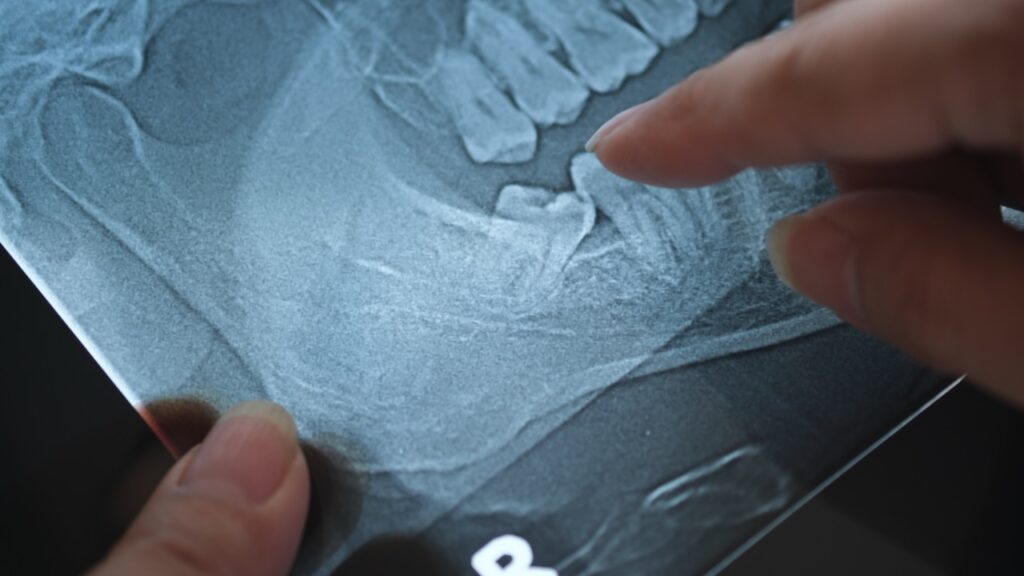Resource Library
Start Reading

“I’ve all my wisdom teeth,” sang the Canadian rock group Crash Test Dummies, “ … yet I’ll recognize / My mouth says things that aren’t so wise.”
It’s true: The benefits of keeping wisdom teeth don’t include wisdom! Indeed, wisdom teeth removal is often the wisest course of action. About 85% of wisdom teeth must eventually be removed, making it one of the most commonly performed oral surgeries.
Many of our patients at Penn Dental Family Practice (PDFP) ask us, “Can I leave my wisdom teeth in? What will happen if I have them pulled?”
Read on for some reliable intelligence about wisdom teeth. You’ll find out what they are, why we have them, and how to deal with them in the smartest way you can.
 Also known as third molars, wisdom teeth are the last set of molars. They are located in the back of the mouth, with one wisdom tooth in each quadrant. They typically erupt from the gums in early adulthood, usually between the ages of 17 and 25. They are the last permanent (secondary or adult) teeth to emerge.
Also known as third molars, wisdom teeth are the last set of molars. They are located in the back of the mouth, with one wisdom tooth in each quadrant. They typically erupt from the gums in early adulthood, usually between the ages of 17 and 25. They are the last permanent (secondary or adult) teeth to emerge.
Because they believed physical maturity brought matching intellectual maturity, the ancient Greeks dubbed these molars the “teeth of wisdom” (“sophronisteres,” from “sophron,” meaning “prudent, self-controlled”). In English, the name has stuck since the mid-19th century.
Given how common wisdom teeth removal is, you may wonder why we have them at all. Evolution gives the answer.
Our ancestors had diets consisting of coarse materials that required a stronger set of molars for chewing. But as human diets have shifted and dental care has advanced, the need for these extra teeth has diminished significantly.
 If you’re fortunate, nothing happens. For some individuals, wisdom teeth erupt without any issues and do not require removal. In many other patients’ mouths, however, wisdom teeth don’t have enough space to erupt properly or grow in at an angle. Problems can result.
If you’re fortunate, nothing happens. For some individuals, wisdom teeth erupt without any issues and do not require removal. In many other patients’ mouths, however, wisdom teeth don’t have enough space to erupt properly or grow in at an angle. Problems can result.
These potential problems include:
You need routine dental checkups and X-rays to monitor your wisdom teeth’s development and ensure they don’t cause overcrowding or other dental problems. If you can leave wisdom teeth in, your dentist will tell you. If you shouldn’t, they will tell you that fact, too.
If your dentist or oral surgeon has recommended removing your wisdom teeth, knowing what to expect can help alleviate any anxiety you may feel about the experience.
At the start of your procedure, your dental professional will administer local anesthesia or sedation to ensure you are comfortable and pain-free. The surgery itself usually takes about 30 to 60 minutes, depending on the complexity of the case.
After wisdom teeth extraction, you may experience some swelling, bruising, and discomfort. Such pain is normal, and you can manage it by taking prescribed pain medication as directed.
Your dentist will provide thorough aftercare instructions, including tips on how to care for the extraction site to promote healing and minimize complications.
Many dental extraction patients recover fully within a week. For those with impacted teeth or other complications, full recovery might take up to a month. Ultimately, individual recovery times may vary based on such factors as age, overall health, and the complexity of the oral surgery.
 If you want to know for certain whether wisdom teeth removal is the wise choice for your oral health, trust the dentists and oral surgeons at PDFP.
If you want to know for certain whether wisdom teeth removal is the wise choice for your oral health, trust the dentists and oral surgeons at PDFP.
We’ll evaluate your teeth’s position and health, and let you know whether the benefits of keeping your wisdom teeth outweigh the benefits of having them extracted.
Should you need an extraction, we’ll perform it using the most proven, patient-focused techniques. And our rates won’t cause your budget unnecessary pain, either.
If you still have all your wisdom teeth, one of the wisest things your mouth can say is, “I’d like to schedule my PDFP appointment!” Schedule your appointment online now or call us at 215-898-PDFP (7337).